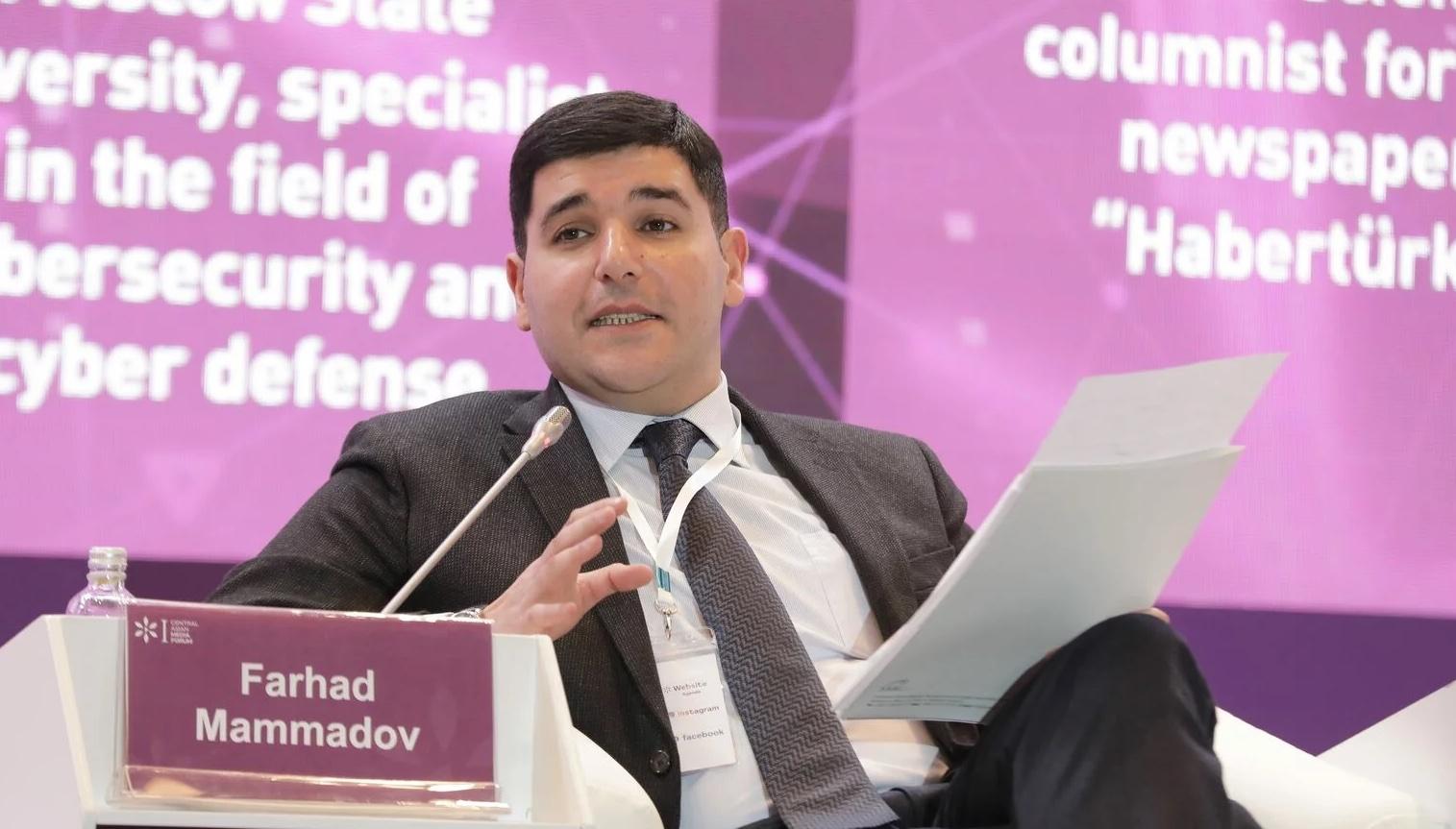Azerbaijan, US shaping political architecture of South Caucasus Expert opinions on Caliber.Az
The anticipated initialling of the peace agreement between Baku and Yerevan appears to be only the prelude to a series of major foreign policy breakthroughs for Azerbaijan. These include the final dissolution of the OSCE Minsk Group and the formation of a strategic working group on the Charter of Strategic Partnership between the Republic of Azerbaijan and the United States of America. Azerbaijan is gaining new partners while sidelining toxic actors in the region who are not interested in peace in the South Caucasus.
Here’s what analysts from different countries told a Caliber.Az correspondent about the expected signing of key agreements between Azerbaijan, the U.S., and Armenia in Washington.
Azerbaijani political analyst and head of the South Caucasus Research Centre, Farhad Mammadov, believes it is especially significant that the Azerbaijani leader’s first visit to the U.S. following President Trump’s inauguration is accompanied by the creation of a strategic working group focused on drafting the Charter of Strategic Partnership, which will cover three main areas.

“It is important to note that there is not even a hint of Washington’s ideologised foreign policy here—one that typically implies interference in a state’s internal affairs. This document will be balanced, more pragmatic, and will cover highly important issues. First and foremost: the economy, logistics, defence cooperation on security matters, as well as artificial intelligence—an area in which Azerbaijan already has ongoing collaboration with China. In other words, Baku is shaping strategic relations with the world’s two major powers that possess vast potential in the field of artificial intelligence,” the political analyst noted.
In his view, the personal dynamic between Presidents Aliyev and Trump should also be emphasised, as it played a defining role.
“In modern politics, especially during the Trump era, personal connections are everything—they form the very foundation for building bilateral relations. The fact that President Aliyev expressed open support for Trump just months before the election, stating that he shares his political and ideological views, has also played a significant role in forging this new type of engagement between Baku and Washington,” the analyst stressed.
He believes that in the process of normalising relations between Baku and Yerevan, the sides are reaching the point of no return—firmly setting the dialogue on a peaceful track and eliminating the use of force.
“In other words, we are enshrining the peace agenda as a foundational principle in a joint declaration. This, in effect, represents a certain degree of commitment to resolving all issues exclusively through political and diplomatic means, ruling out any military solutions. Alongside this, all the processes initiated by the President of Azerbaijan over the past year will also be reflected—first and foremost, the peace agreement, which Azerbaijan proposed; its signing procedure, including coordination and initialling; the dissolution of the OSCE Minsk Group as the first prerequisite; and the second, the amendment of Armenia’s constitution. This, in turn, implies further steps toward the ratification of the peace agreement,” the political analyst stated.
Farhad Mammadov is convinced that Azerbaijan’s most skilful diplomatic manoeuvre was to remove the issue of the transport corridor from the context of the peace treaty—creating a deliberate pause in negotiations on this matter so that the topic could mature.
“And it has matured to the extent that the peace agreement has been finalised, while the transport issue has been left hanging in the air. This has pushed the Armenian side to take more creative steps in partnership with the United States, offering a special, unimpeded operational regime for the route with international security guarantees. They may call it one thing, and we may call it another—but that does not change the essence. It will be a road with international security guarantees. This approach is almost certainly acceptable to the Azerbaijani side, as it aligns with President Aliyev’s expectations regarding the unblocking process,” Mammadov concluded.

American analyst, geopolitical and security expert, and Editor-in-Chief of The Washington Outsider, Irina Tsukerman, believes that the upcoming events in Washington carry special significance not only for bilateral relations between Azerbaijan and the United States, but also for the entire South Caucasus—a region that has long remained tense and fraught with complex geopolitical dynamics.
“The expected initialling of the peace agreement between Azerbaijan and Armenia marks an important step towards the final resolution of a conflict that, for decades, has had a devastating impact on the lives of millions, hindered economic development, and undermined regional security. This peace accord lays the groundwork for lasting peace, enabling regional countries to shift from confrontation to cooperation and joint development. Moreover, the agreement not only reduces the risk of renewed military hostilities but also creates new opportunities for regional integration, infrastructure restoration, and foreign investment,” the political analyst noted.
In her view, the dissolution of the Minsk Group will symbolise a new approach to resolving long-standing issues, as the Group—operating under the auspices of the OSCE and comprising several major powers—often became a hostage to geopolitical interests and was unable to respond effectively to rapidly changing realities on the ground.
“Shifting away from the Minsk Group’s role in favour of bilateral and regional dialogue—backed by U.S. support—reflects the desire of the Azerbaijani side and its partners to move toward a more pragmatic and effective diplomacy,” the analyst stated with confidence. “Such a transition will not only accelerate the implementation of peace agreements, but also reduce the influence of external actors whose interests have often diverged from the goals of regional stability.”
The anticipated suspension of Section 907, in her assessment, carries significant political and economic weight, as it had long served as a tool of restriction against Azerbaijan.
“Its suspension signals a profound shift in the U.S. administration’s approach to the region and a recognition of Azerbaijan’s strategic role in ensuring Eurasian security and global energy supply. This decision opens up broad opportunities for Azerbaijan to deepen cooperation with the United States across various fields—from defence to investments in key sectors of the economy. The restoration of full bilateral relations will allow Azerbaijan to engage more actively in international economic and political processes, while also boosting investor confidence—positively impacting the country’s domestic development,” she emphasised.
According to her, the establishment of a strategic working group on the Charter of Strategic Partnership is a key organisational tool that will enable systematic coordination between the two states. This structure will help plan and implement joint projects in the fields of energy, transport, information technology, and security.
“Particular emphasis is being placed on the development of digital infrastructure and the integration of artificial intelligence, which aligns with current trends in the global economy and technological advancement. For Azerbaijan, this opens up new horizons for modernising its economy, attracting high-tech investment, and fostering an innovation-driven environment. For the United States, such a partnership provides an opportunity to strengthen its influence in a strategically important region and establish a stable foundation for further cooperation with regional states,” the political analyst noted.
Taken together, all these steps, in Irina Tsukerman’s view, form a solid platform for strengthening peace and stability in the South Caucasus.
“By deepening cooperation with the United States, Azerbaijan receives a powerful boost for its economic development and security. At the same time, for Washington, these developments represent an expansion of its influence in a region that plays a key role in energy, transit, and the geopolitical balance between East and West. This alliance will allow the two countries not only to address current challenges, but also to jointly shape the region’s future political architecture—one based on sustainable development, mutual respect, and effective partnership. Ultimately, this milestone could mark the beginning of a new era of cooperation and prosperity for Azerbaijan and its allies,” Tsukerman concluded.

Israeli journalist and publicist, Rostislav Goltsman—head of the International Relations Commission of the Union of Journalists of Israel—noted that the moment has arrived when one can confidently say: Baku’s years-long diplomatic efforts have borne fruit.
“Let me remind you that during his visit to the U.S., Israeli Prime Minister Benjamin Netanyahu handed the American President a copy of Israel’s official letter nominating Donald Trump for the Nobel Peace Prize, highlighting his efforts in resolving multiple conflicts—including the one between Armenia and Azerbaijan. I believe U.S. influence and pressure also played a key role in pushing the Armenians to amend their constitution to remove references to the Declaration of Independence, which asserts the Karabakh region of the Republic of Azerbaijan as part of Armenia. Now, the peace agreement is being initialled in accordance with these commitments made by Armenia. Clearly, Pashinyan was in a difficult position, but he went ahead with it—apparently in large part due to American involvement. The planned suspension of Section 907, in turn, is a massive step forward,” the analyst said.
In his view, everything ultimately comes down to the situation “on the ground.” Following Azerbaijan’s military and diplomatic victories, the dynamics are shifting.
“It’s worth noting that the shift is occurring in a direction very favourable to Azerbaijan. I also believe that Azerbaijan’s accession to the Abraham Accords is not far off—especially considering there is strong initiative on this from the Israeli side. Therefore, the expected White House meeting between President Trump, President Aliyev, and Prime Minister Pashinyan for the signing of the peace agreement is a gateway to further progress and next steps in regional relations. This is yet another confirmation of Azerbaijan’s growing authority not only in the region but globally,” Goltsman concluded.

Kazakh political analyst, PhD in Political Science, and member of the National Kurultai under the President of the Republic of Kazakhstan, Talgat Kaliyev, described the upcoming signing of key agreements in Washington as a historic event—including for Kazakhstan, which played a direct role in the settlement process between Armenia and Azerbaijan.
“It was on Kazakhstan’s initiative that a platform was provided in Almaty for hosting negotiations, which became part of the broader process that is now reaching a truly triumphant conclusion,” he noted, emphasising that Azerbaijan is a brotherly nation to Kazakhstan.
According to him, the importance of the moment also lies in the fact that the launch of the Zangezur Corridor opens up new prospects for the Trans-Caspian International Transport Route, which is of critical significance for Kazakhstan.
“This is a multi-layered, multifaceted event that presents enormous opportunities not only for the South Caucasus, but also for Central Asia and the entire continent. This route is the shortest one connecting Europe with these regions. I believe this will also mark a new chapter for Armenia—particularly in economic terms—since the future signing of the peace agreement between Baku and Yerevan will lift the economic blockade and isolation regime into which Armenia had placed itself for many years,” Kaliyev concluded.

Ihor Semyvolos, Director of the Ukrainian Centre for Middle East Studies, also noted that this is undoubtedly an important day for both countries.
“A long-standing conflict is finally coming to an end. I would like to highlight several key aspects. First, both countries now have the opportunity for peaceful coexistence—and it will be crucial to see how they make use of this chance. Armenia will no longer be a transport dead-end, which will clearly have a positive impact on its economy and create preconditions for active cooperation with Türkiye, whose market is attractive for Armenian businesses. Azerbaijan, in turn, will reaffirm its status as a powerful and influential state in the region.
Equally important is the fact that Russia is losing its exclusive hold on the region—this marks a new chapter in the South Caucasus. It is an extraordinary moment, arguably the first of its kind since Russian troops first appeared in the region centuries ago,” Semyvolos stated.








